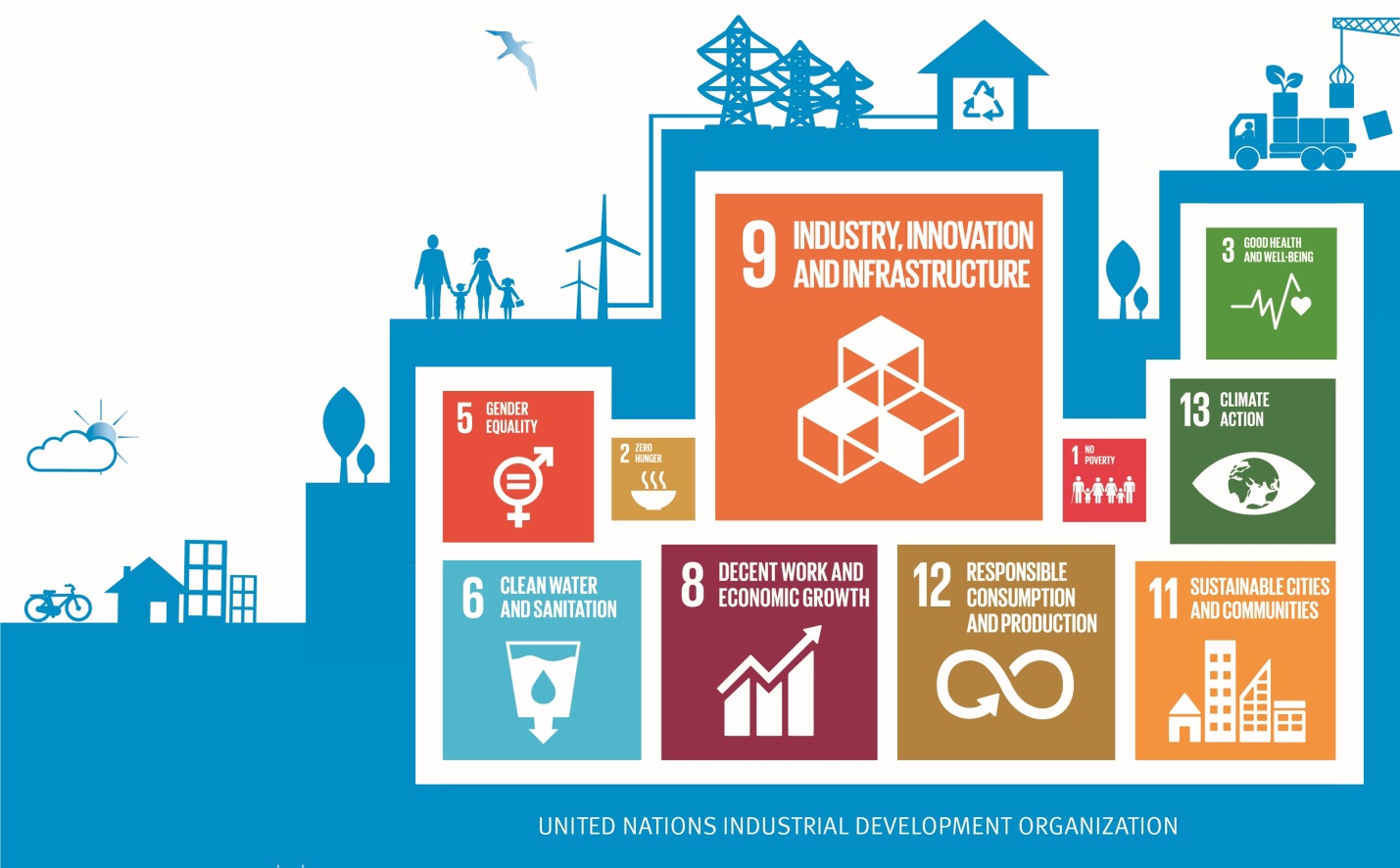
Pollution, climate change, habitat destruction and over-exploitation of natural resources such as fresh water and fisheries are doing great harm to human health, wellbeing and livelihoods, especially among poorer regions, and is undermining the prospects for a long-term resilient and robust economy. One of the prerequisites for industry to flourish in a sustainable manner is the availability of an assured supply of affordable and clean energy, together with improved resource efficiency.
The risks of climate change are well documented and its impacts are already affecting people and ecosystems. Meeting the climate challenge requires industries and institutions — both public and private — to be able to assess and understand climate change, design and implement adequate policies and to work towards resource efficient societies and low emission growth. “Decoupling” natural resource use and environmental impacts from economic growth is a key requirement for overcoming the pressing challenge of growing resource consumption levels.
Against this background, UNIDO supports countries in their environmental management efforts, including the implementation of multilateral environmental agreements and the provision of sustainable energy. It helps create new green industries, establishing national road maps for greening the supply chain, determining benchmarks and indicators, disseminating and sharing best practices, running clean technology programmes, undertaking various capacity-building exercises and contributing to international forums with the necessary research and expertise.
UNIDO's services include capacity building, direct technical support to enterprises and assistance to government institutions on Cleaner Production (CP) policy matters, as well as the promotion, adaptation and transfer of environmentally sound technologies and the implementation of advanced CP business models, such as chemical leasing.
In the field of water management UNIDO focuses on the sustainable use of water resources. This includes capacity-building for the industrial sector to improve water productivity, reuse and recycling, as well as the introduction at all levels of government policies and training in the adoption of the ecosystem approach and the sustainable use of its living resources.
UNIDO stresses the need to improve industrial energy efficiency by contributing to the transformation of markets for energy-efficient products and services. It promotes sustainable energy solutions for making industries more productive and climate resilient, which in turn promotes green jobs and green growth, including the deployment of industrial energy efficiency standards, smart grids based on renewable energy and renewable energy for industrial applications as well as the promotion of climate resilient industries.
An urgent need also remains to phase out the production and consumption of ozone depleting substances (ODSs), which lead to the continuing degradation of human health and the natural environment. The Vienna Convention and the Montreal Protocol provide a response to that need.
UNIDO assists governments of developing countries that are signatories to the Montreal Protocol to comply with its requirements through transferring non-ODS-based technologies to Article 5 countries and supports them to meet the set targets in terms of tonnages of ODS to be eliminated.
There is a commitment on the part of governments that are parties to the Stockholm Convention on Persistent Organic Pollutants (POPs) to implement legal, organizational and environmental management measures, including substantive technological changes, in order to comply with the requirements of the Convention. The production and use of POPs as well as their presence in the biosphere are causing serious damage to human health and the environment. UNIDO also assist countries in reaching compliance with the Stockholm Convention and develops capacity s in developing countries to protect their populations and their environmental resources from POPs-related pollution. UNIDO also supports countries in addressing the commitments under the Minamata Convention on Mercury.
